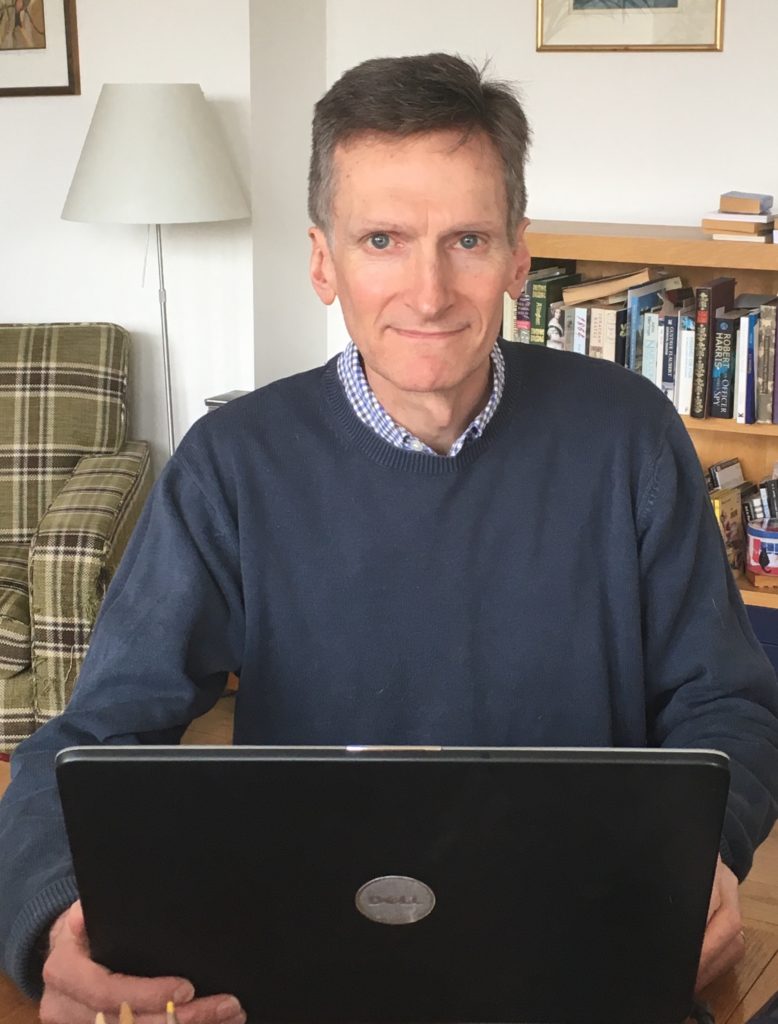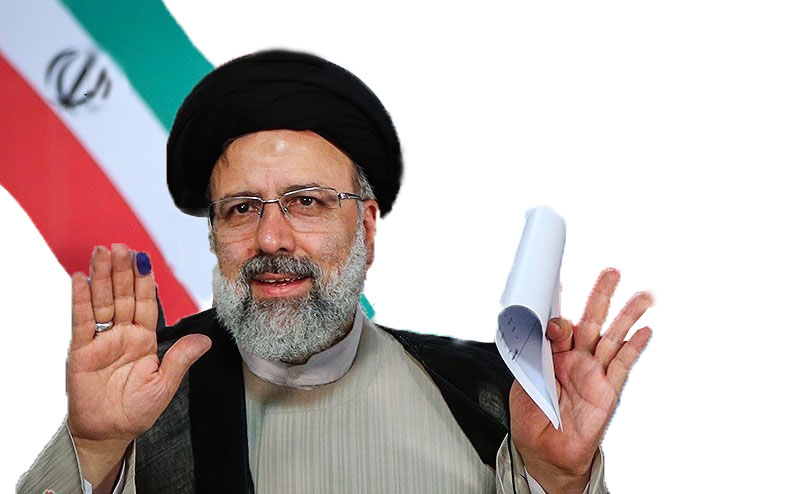01 July 2021
Past and President
Iran, Russia, China.
By Neil Tidmarsh
 What have Joseph Stalin, Chairman Mao and Iran’s new president Ebrahim Raisi all have in common? Yes, they were all in the news this week – but what else? Yes, they have all been accused of being complicit in the deaths of thousands or even millions of their own people and yet they are all still admired and even revered by thousands or indeed millions of their own people.
What have Joseph Stalin, Chairman Mao and Iran’s new president Ebrahim Raisi all have in common? Yes, they were all in the news this week – but what else? Yes, they have all been accused of being complicit in the deaths of thousands or even millions of their own people and yet they are all still admired and even revered by thousands or indeed millions of their own people.
To be fair to President Raisi, it isn’t at all clear how many of his own people do admire and revere him, even though he was elected their president last week. He won 62% of the votes cast, but more than half of the electorate didn’t vote (even the official turnout figure was only 48.8%), which means that less than a third of the electorate voted for him. Almost four million spoiled ballots were cast, which (along with the low turnout) suggests widespread dissatisfaction with the choice of candidates. The Guardian Council, which vets all candidates, barred hundreds from standing, and others withdrew from the race only days before the election, ensuring that there was little real choice or competition; no one expected anyone other than Raisi, an ultraconservative cleric and Iran’s hard-line chief justice, to win.
What is more clear, however, is Raisi’s brutal record as prosecutor, judge and head of Iran’s judiciary. He has been called “the Butcher of Tehran” for his alleged role in mass executions; as a prosecutor in the 1980’s he was a member of clerical ‘death committees’ which presided over mass show trials of dissidents and political prisoners and condemned them to death in their thousands. This week, witnesses and victims accused Raisi of being complicit in these mass executions (as many as five thousand hangings are believed to have taken place) and in the torture and rape of prisoners as well. His record earned him a place on a US sanctions list two years ago, and Amnesty International is calling on the United Nations and the international community to investigate these allegations of crimes against humanity.
If the result of Iran’s presidential election wasn’t a surprise, the results of a ballot in Russia this week certainly were. In a public opinion survey on “the most prominent figure in world history”, President Putin did not come out on top; he didn’t even come in the top three. The independent Levada Centre in Moscow runs the poll every four or five years, and this year President Putin fell from second to fifth place, with his ratings tumbling from 34% to 15%. Joseph Stalin came first (followed by Lenin, then Alexander Pushkin, then Peter the Great), as he has for the last nine years. The Russian voters clearly weren’t impressed or convinced by Joe Biden calling their president a killer; they decided to vote for a real killer – a killer on an epic scale – instead.
Stalin’s persecution of kulaks (independent peasants opposed to collectivisation) resulted in millions of deaths in 1932/1933 alone. Further millions starved to death following the failure of his industrial and agricultural five year plans. Army officers, intellectuals and political rivals were ruthlessly purged in regular blood-baths. Dissidents were sent to gulags which were little more than death camps. His ‘cult of personality’ was denounced and his crimes were condemned by most of the Soviet leaders who came after him, but in recent years the current President has been making strenuous efforts to repair the dictator’s reputation – so perhaps Putin has only himself to blame for not coming top in that poll.
President Putin’s relationship with Joseph Stalin has many parallels with China’s President Xi’s relationship with Mao Zedong. Stalin’s status as leader and saviour of the nation in its heroic struggle against Nazi Germany in World War II can be usefully co-opted by the Kremlin, but there are dangers; a giant figure from the past can’t be allowed to dwarf the leaders of the present or to contaminate them with his crimes and failures. Similarly, President Xi has sought to protect Chairman Mao’s reputation (Mao was the founder of the Chinese Communist Party and led his forces to victory against the Japanese and the Chinese Nationalists) even though Mao’s ‘Great Leap Forward’, purges, ‘Cultural Revolution’ and disastrous industrial and agricultural planning resulted in the deaths of millions. In the 1980s, leader Deng Xiaoping criticised Mao’s record, but more recent leaders of the CCP have safeguarded Mao’s memory, no doubt finding it useful in strengthening the party which he founded and in establishing independence from Deng’s own considerable legacy.
This week, China is celebrating the centenary of the founding of the CCP by Mao Zedong in 1921, and a number of signs are suggesting that President Xi is positioning himself not just as Mao’s heir but as his equal. He’s expected to secure a third presidential term, one more step towards a life-time presidency to equal Chairman Mao. As part of the celebrations, he opened a new museum dedicated to the history of the party; one quarter of it is dedicated to his own times and achievements, even though he’s been in power for only ten years. A book of quotes and sayings has been published to commemorate the centenary; a third of them are credited to Xi, equalling the number credited to Mao.
So the legacies of Joseph Stalin and Mao Zedong live on, in spite of the deaths precipitated by their policies and failures. They are too useful to the current presidents of Russia and China, not least in their pursuit of a presidency for life. The new president of Iran (who may well be heading for a lifetime in power himself – many commentators are already seeing him as the heir to the Ayatollah) might find that reassuring.
Cover image Tasnim News Agency, CC BY 4.0, via Wikimedia Commons


